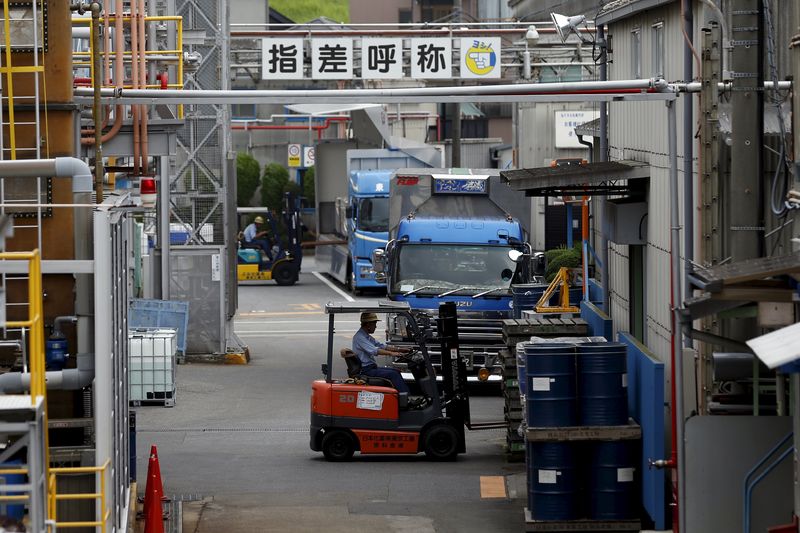By Ambar Warrick
Investing.com -- Japanese factory gate inflation grew more than expected in December, data showed on Monday, sticking to its highest level in 42 years as local producers continued to grapple with high import costs and a weakened yen.
The producer price index (PPI) grew at an annualized rate of 10.2% in December, more than expectations for growth of 9.5% and last month’s reading of 9.7%, data from the Bank of Japan showed.
On a monthly basis, PPI inflation grew 0.5% in December, more than expectations for a rise of 0.3% but slightly lower than last month’s reading of 0.8%. But November’s reading was also revised higher to 0.8% from 0.6%.
The index was now back at peaks seen during 2022, which were in turn at their highest levels since 1981. The resurgence in PPI inflation was driven chiefly by renewed volatility in global commodity prices, which advanced in December on expectations of a demand recovery in major importer China.
Weakness in the yen also factored into higher raw material costs for Japanese producers. While the currency marked a strong recovery in December, it was still trading well below levels seen in 2021. The yen also tumbled nearly 14% in 2022.
The rise in PPI inflation comes just a few days before the release of consumer price index inflation data this week, which is expected to show that prices of consumer goods grew at their fastest pace in over 40 years in December. Inflation in Japan's capital - a bellwether for countrywide inflation - grew more than expected in December.
The Bank of Japan is also set to meet later this week, with markets positioning for any hawkish signals from the lender to curb rising price pressures. The BoJ had unexpectedly struck a hawkish tone during its December meeting, which in turn sparked a stellar rally in the yen and benchmark bond yields.
Rising inflation, coupled with weakening demand for Japanese exports, is expected to have weighed on the Japanese economy towards the end of 2022. Markets are wary of another possible contraction in the fourth quarter, after the world's third-largest economy unexpectedly shrank in the third quarter.
